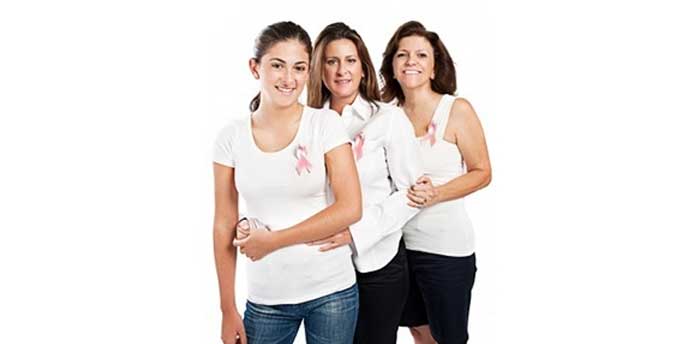Think of 8 women in your life. A best friend. Your mother. Your daughter. Got them all lined up in your mind? Well, current statistics show that 1 in 8 women will develop invasive breast cancer sometime during her life. Think about that for a moment.
But, that isn’t the end of the story. Early detection and treatment offers the best chance of survival. When breast cancer is diagnosed at an early stage and is confined to the breast, the 5-year survival rate is 98 percent.
So, it is very important for you to know your personal risk for breast cancer as well as how you can facilitate early detection. Following are some tips from Dr. Cheryl Perlis.
Screening Recommendations
- Start annual screening mammograms at age 40.
- Have a breast exam performed by doctor at least once per year.
- Do monthly breast self exams starting at age 20.
As you begin performing your breast self exams, you must first become familiar with the normal appearance and feel of your breasts. Then, as you perform your monthly exam, look for:
- Any changes in feel or look of breast or nipple.
- A lump in or near breast area including underarm.
- A retracted nipple or discharge from the nipple.
- Change in skin on breast (scaling, redness, swollen or orange peel-like skin).
Whether your mammogram is normal, if you feel or see something that has changed in your breasts, you should always contact your doctor and be examined.
Known risk factors
- All women are at risk for breast cancer.
- A family member, mother, sister or daughter, has had breast cancer (this accounts for only 5-10 percent of the population).
- Starting menopause after age 55.
- Never having children.
Most women who get breast cancer have no known risk factors except being a woman and getting older.
In order to help minimize your risk, you can make a difference with these actions:
- Get yearly mammograms after 40.
- See your doctor on a regular basis.
- Do your breast self exams monthly.
- Maintain a healthy weight.
- Add exercise to your routine.
- Limit alcohol intake.
It is important to remember if you feel something different or see a change in your breasts, contact your physician and allow him or her to examine you—even if your mammogram was normal.
Written in proud sponsorship with Perlis Wellness Center and Cheryl Perlis, M.D.

